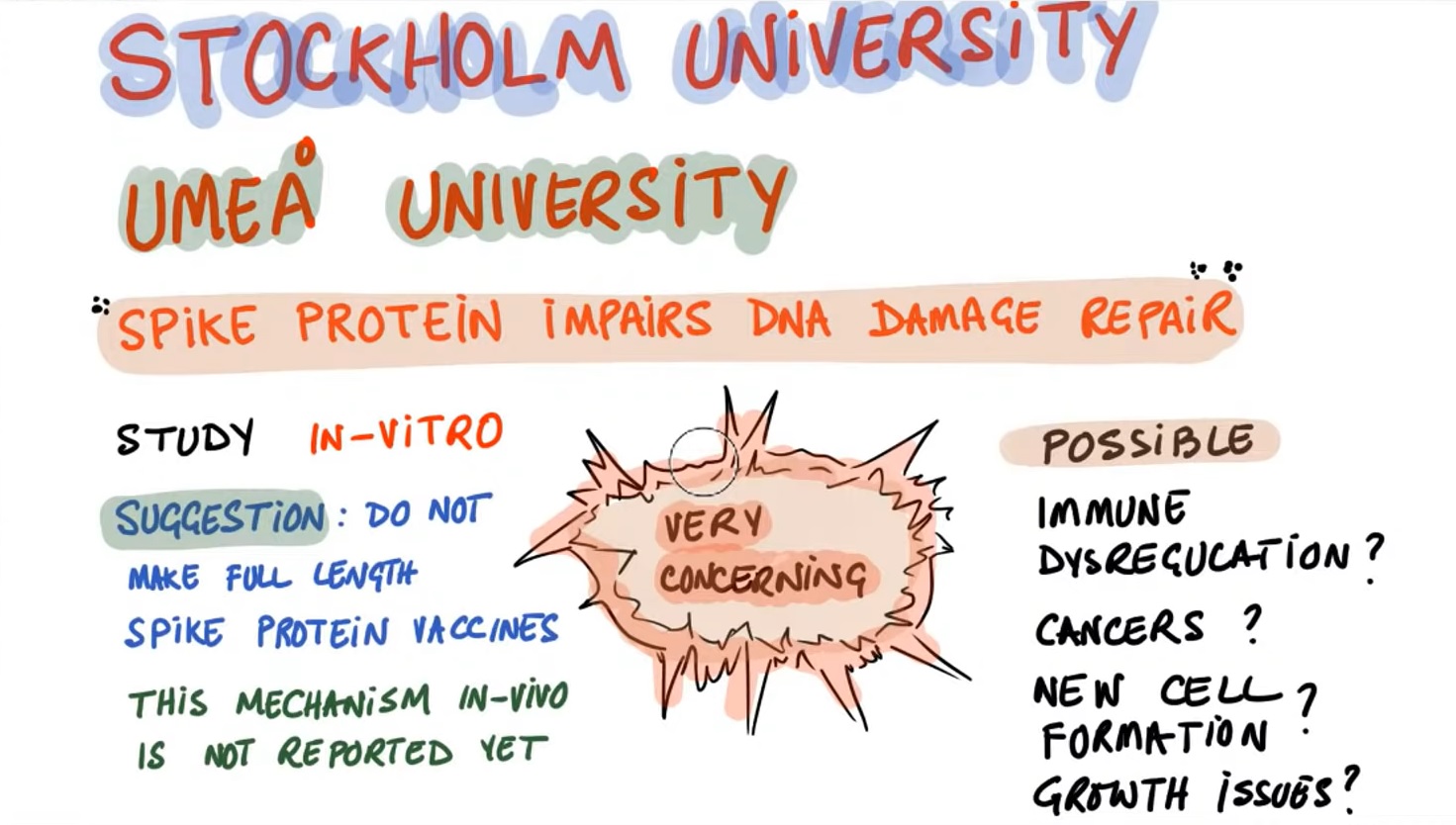🔬 A new study published last month in the MDP Viruses Journal is titled, “SARS–CoV–2 Spike Impairs DNA Damage Repair and Inhibits V(D)J Recombination In Vitro.” It’s a little troubling for the injections, which make spike proteins. Remember that the “golden rule” of the mRNA injections was that the spike proteins wouldn’t get into cell nucleuses. Because that would be bad.
Well, guess what these researchers found? Tons of spike proteins INSIDE THE CELL NUCLEUS. Uh oh. Now, this was only in vitro (in test tubes) and not in vivo (in humans). But it raises some awkward questions.
Section 3.2 of the article is captioned “Spike Protein Inhibits DNA Damage Repair.” That’s not good. The section concludes, “Our findings provide evidence of the spike protein hijacking the DNA damage repair machinery and adaptive immune machinery in vitro.”
Now, try to follow me here. DNA repair is very important to stop mutations, like cancer. Anything that inhibits the repair mechanism is going to be a problem. The researchers noted, “If DNA damage cannot be properly repaired, it will contribute to the amplification of viral infection-induced pathology.”
This is so bizarre. The experts ASSURED me that spike proteins are good for you. What could have gone wrong?
— Jeff Childers, highlights quoted from study
In other words, when damage occurs to DNA, your cells may no longer be able to fix it.
The jabs work by causing your own cells to create spike proteins, so this is a big deal.
Sources:
- October 13, 2021. Hui Jiang, and Ya-Fang Mei. “SARS–CoV–2 Spike Impairs DNA Damage Repair and Inhibits V(D)J Recombination In Vitro.” Viruses 13 (10): 2056.

https://doi.org/10.3390/v13102056.
Research Journal. - November 4, 2021. Mobeen Syed. Spike Protein Goes to Nucleus and Impairs DNA Repair (In-Vitro Study). Drbeen Medical Lectures.

https://www.youtube.com/watch?v=-SYL-iU0E9Q.
Video.
This video explains the above journal article. - November 10, 2021. Jeff Childers. “☕️ Coffee & Covid ☙ Wednesday, November 10, 2021 ☙ FOUND 🦠.” ☕️ Coffee & Covid 2021 🦠.


https://www.coffeeandcovid.com/p/-coffee-and-covid-wednesday-november-b97.
Law, Blog. - March 1, 2022. Arsenio Toledo. “Studies Confirm Spike Protein MRNA in COVID Vaccines Alters Human DNA within Hours after Injection.” Vaccine Injury News.

https://www.vaccineinjurynews.com/2022-03-01-spike-protein-mrna-vaccines-alters-human-dna.html.
General Website Link.

The researchers suggested that perhaps the jabs could be modified to cause the cells to make an even smaller piece of the COVID virus. The way I see it, there is no point in continuing the jabs at all. Recent data shows that the current versions of the jabs have minimal, if any, benefit. Anything that modifies the genetic material of the recipient to create anything related to a virus or otherwise non-human is a bad idea. In my opinion, the only allowable use for the mRNA technology is the restoration of genetics to its original code.